Great teachers are often made, not born. Sometimes they fall into the profession by accident, only to find it is their "true love." Take Chris Diorio, a UW computer science professor who left a California high-tech firm for the classroom, or Biren Nagda, who came to America to become a dentist but ended up inspiring would-be social workers, or Robyn Hunt, who left a career on the stage to train others headed for Broadway and Hollywood.
These three belong to a group of UW teachers honored this month as winners of the UW Distinguished Teaching Award. Panels of faculty, students and alumni reviewed dozens of candidates before selecting the top teachers in Seattle, Bothell and Tacoma. The seven winners will be honored at the UW Recognition Ceremony held June 7 in Meany Theater and at commencement held June 9 in Husky Stadium. Both events are free and open to the public.
While the spotlight is on faculty, the UW will honor TAs, public servants and staff as well. Two teaching assistants are winners of the 2001 Excellence in Teaching Award; three faculty members have won public service awards, and five employees have won Distinguished Staff Awards. What follows is an inside look at faculty teaching plus a review of other award winners. In the September issue of Columns, we will also recognize the President’s Medalist and departments that have won the Brotman Excellence in Teaching Award and the Brotman Diversity Award.
Distinguished Teaching Awards
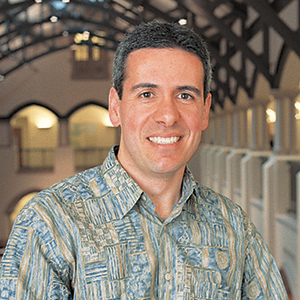 Chris Diorio
Chris Diorio
Computer Science and Engineering
Anyone taking a look at Chris Diorio in 1997 would have thought, “Here’s a guy who has it made.” He was a senior staff engineer with a top-flight company in Los Angeles, developing high-speed circuits and systems. That year he also earned a doctorate in electrical engineering from Caltech. His employer had just offered him a position as a technical fellow. His wife had just finished her medical residency, their two daughters had just turned 3 and 6, and they lived within bicycling distance of the beach.
Yet Diorio wasn’t really where he wanted to be in life. The more he got promoted, the more time he spent on business and management. And Diorio, a self-described “kid at heart,” preferred problem-solving, playing with technology and spending time mentoring junior engineers. For years, his wife had prodded him to consider academia. Then, a colleague, who had retired and had lifelong dreams of traveling, died of cancer. Then and there, Diorio decided to change his life, and turned to teaching.
“These were turning points for me,” says Diorio, who has been an assistant professor in the Department of Computer Science and Engineering since 1997. Ensconced at the UW, Diorio realized that his wife was right. He loved the intellectual freedom the UW offered—and he loved being a teacher.
Since 1997, Diorio has taught every quarter except one, and five of nine courses he has taught were either brand new or substantially revamped. “Chris has transformed our undergraduate and graduate curriculum,” says Computer Science and Engineering Chair Ed Lazowska, “by infusing five entirely new courses in three years—courses that exploit his seven years of industrial experience as a designer of ultra-high-speed logic for satellites, and courses that totally change our students’ view of computation.”
Chad Lindhorst, a former student, paints a vivid picture of Diorio in the classroom: “I saw an incredibly bright professor jumping up and down, drawing diagrams on the board and making up voices for electrons and transistors (the big transistors sounded a little deeper). … He was constantly showing us the different ways contemporary professionals address problems, including many advanced topics. This gave us a wonderful feeling that what we were doing was real.”
Despite a heavy teaching load, Diorio has also managed to reap several prestigious professional awards. He received an Alfred P. Sloan Foundation Research Fellowship in 2000. In 1999, he received both a David and Lucille Packard Foundation Fellowship and a National Science Foundation Presidential Early Career Award in Science and Engineering. —Julie Garner
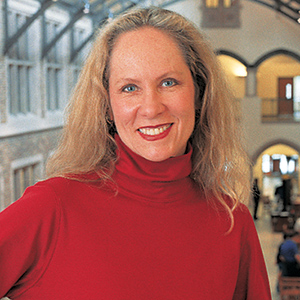 Robyn Hunt
Robyn Hunt
Drama
A coach, guide, teacher, director and professional actor who has performed throughout the U.S. and internationally, Robyn Hunt gives her students “110 percent on a bad day.” That’s the assessment of Sarah Nash Gates, director of the School of Drama, where Hunt is an associate professor.
In 1988, Hunt became head of the UW’s undergraduate drama program. Since then, she has reorganized the curriculum, increasing the number of drama majors and strengthened the program devoted to performance.
Last year she stepped down from this position to devote her time to the M.F.A. Professional Actor Training Program. She teaches a rigorous system of physical training she learned in Japan and helps her students create and perform original, one-person theater pieces.
Hunt draws on years of experience on the stage. She earned her M.F.A. in acting from the University of California, San Diego in 1978 and since then has directed plays, acted and conducted workshops across the country. But she always wanted to teach, a desire she attributes to her father, who served as her first and strongest mentor. Hunt says that her father, a retired chair of physical education at UCSD, served as a living example of how a generous and attentive teacher could help students.
Hunt’s lack of ego is demonstrated by an experience she had with Catherine Madden, an artist-in-residence at the School of Drama. The techniques Hunt was teaching her students were actually undermining one of Madden’s techniques.
“As I approached Hunt with my questions and objections, I experienced how much Hunt’s work is about excellence in her teaching and not about ‘hanging on’ to previous conceptions,” Madden says. “Not only did Hunt start changing how she taught specific techniques, but she also started inventing new exercises that addressed the very issues that I had brought to the class.”
Peter Kyle, lecturer in the UW Dance Program, says that Hunt has a unique ability to create bridges to maximize the benefits of a university education. For example, she has taken graduate students on a series of visits to the Chamber Dance Company. After dance rehearsals, Hunt leads lively discussions about how the dancing and acting relate. “The students seemed not only invigorated by the exchange, but also eager to return to their own work, empowered by the new information,” Kyle says.
Hunt is always creating new ways for students to learn, whether it’s through dialogue after a dance concert, new techniques or performance ideas. When Hunt and her students begin their work, it’s always a fresh creation. —Julie Garner
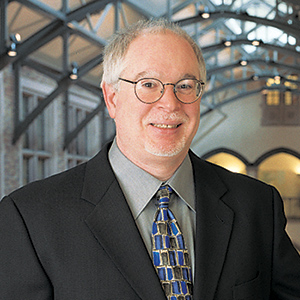 Ronald S. Irving
Ronald S. Irving
Mathematics
If trickle-down theory works in education, then Ron Irving, a UW mathematics professor, is having a profound effect on high school math students in Washington and elsewhere. Over the past five years, Irving has been teaching abstract algebra to UW students destined to become high school teachers.
The course he teaches is tough—not only because it deals with extremely abstract material—but also because it involves learning how to communicate effectively about difficult mathematical ideas. “My focus is how to communicate mathematical ideas in speaking, writing, listening and reading,” he says. “My sense is that for students who are going to be secondary math teachers, it isn’t so important how much math they know, but how they can communicate ideas.”
The idea that communication is as important as the mathematical task itself is novel for many students.
“Mathematics is not only a calculational tool,” Irving declares. “If it were, you could just use a computer program. It’s the flavor of math I want to teach. It’s about ideas and communicating ideas, and ideas are hard. It doesn’t do any good to do a new thing if you can’t convey it.”
Like many faculty attracted to the UW, Irving arrived here in 1980 focused on his research (on representation theory and ring theory).
His work led him to visiting positions at the Institute for Advanced Study in Princeton and the Mathematical Sciences Research Institute in Berkeley. He was a National Science Foundation (NSF) postdoctoral fellow and has served as principal investigator on a number of grants funded by the NSF. He’s given presentations on his research interests at conferences all over the world and has published extensively.
Despite his outstanding record as a researcher and author, it wasn’t until he tackled the challenge of preparing future teachers that a deep passion for teaching ignited. “I always kind of liked teaching; it was fun,” he says. “But, until I did this, I didn’t know there was a deeper joy. It’s by far been the most rewarding teaching experience of my life.”
Susan Sturms, a former student of Irving’s, is now a high school math teacher in the Seattle public schools. She says, “The vast majority of my experience as a student has been in a classroom environment that fostered competitiveness, passivity and memorization of data or algorithmic approaches. Ron’s gift as a professor is his ability to create an environment that requires collaboration, active participation and problem solving founded in a firm understanding of underlying principles.” —Julie Garner
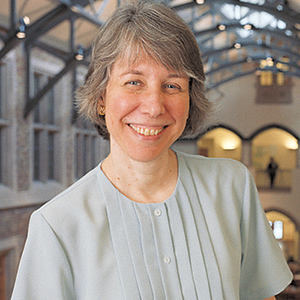 Andrea Kovalesky
Andrea Kovalesky
Nursing, UW Bothell
After 20 years of working as a pediatric nurse, Andrea Kovalesky wanted more from her career.
She realized she would need an advanced degree, so she entered a Ph.D. program in nursing science at the UW in 1991 and began a six-year journey. During those years, she questioned how she might have a bigger impact on the field of health care.
The answer came when Kovalesky recognized that she could play a role in training more qualified nurses to address health care’s critical nursing shortage. She began teaching RNs at the University of Washington, Bothell, sharing with them the first-hand knowledge and experience she has gleaned over her long career.
“Teaching nurses is a delight,” she says. “The students we have are very inspiring.”
As in all of her professional endeavors, Kovalesky has drawn on her personal and professional experience to develop her body of research.
“What we do in nursing is to help people get through the tough times,” she says. “Oddly enough, it can be gratifying to talk to people who are sick and dying and having tough times. There’s lots of satisfaction.” It is that sense of satisfaction that she instills in her students.
“Kovalesky has a unique ability to relate to the class,” says Gary Yurina, one of Kovalesky’s students. “She encourages open discussion on issues, presents multiple sides of arguments, and stimulates thought-provoking discussion. Kovalesky demonstrates the difficult ability to make complicated abstract theory come alive.”
When Kovalesky is not teaching, she is busy conducting research and writing papers. Much of her research has revolved around mothers and addiction, situations she saw frequently as a pediatric nurse. She points out that 20 years ago, many children from broken homes and environments of addiction received no treatment. Today, those very same people are adults, many of them mothers, who are grappling with their own addiction problems.
“Twenty years ago, we didn’t have programs for them, and now we are blaming them,” Kovalesky says. “But we now know a lot about addiction; we know that treatment works given the right support. I believe that treatment works and that people can get into recovery and have good lives. Having seen that, it’s easy for me to do research in the field.”
In summing up her teaching style, Kovalesky says being approachable is paramount. “I’ve thought back to esteemed teachers in my life, and some of the overriding characteristics of those teachers were that they were approachable, thoroughly enjoyed the subjects that they taught, and genuinely cared about each student’s success,” she says. “I have tried to make these aspects the foundation of my own teaching philosophy.” —Cynthia Scanlon, UW Bothell
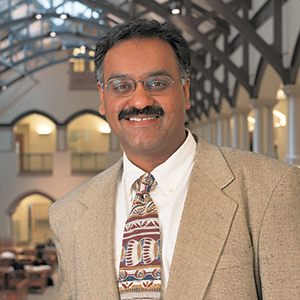 Biren Nagda
Biren Nagda
Social Work
Biren “Ratnesh” Nagda reflects on his career as the “great detour!” He came to the United States from Nairobi, Kenya, with the intention of becoming a dentist. Then, because of his passion for helping people, he thought about medicine. Ultimately, the desire to help people resulted in a doctoral degree in both social work and psychology.
Now, the same impulse that led him to consider careers in health care is informing his teaching at the UW School of Social Work, where he is an assistant professor. Nagda sees his students as future social healers who work to create social justice in holistic ways. His passion for teaching focuses on creatively engaging students to see and understand oppression, privilege and injustices through their own experiences, to dialogue with others, and to become agents for social change.
Nagda’s own personal experiences with the dynamics of race and ethnicity made him ever aware of these issues. “I grew up as an Indian person in Kenya. I was born right after the end of British colonial rule and the beginning of African self-determination under a democratically elected government. I realized that Indian people were caught in between, like a wedge,” he says. “I now understand,” he continues, “that I have a responsibility to transform such wedges into bridges, bridges for healing social divides.”
Nagda’s teaching involves a method called “intergroup dialogue” that he developed with colleagues at the University of Michigan. The dialogues involve facilitated face-to-face meetings of students from diverse backgrounds to explore commonalities and differences, discussing social issues and their impact on relationships among people. This teaching is part of a broader course called “Cultural Diversity and Social Justice” that focuses on theories, empirical knowledge and issues related to difference, oppression and privilege, and social change.
What Nagda has brought to the UW is no less than a profound change in the way students in the School of Social Work learn about cultural diversity and social justice. “No other social work program nationally has implemented such a distinctive, innovative and successful approach to the teaching of cultural diversity,” says Nancy Hooyman, dean of the School of Social Work.
The dialogues, focusing on inter-racial and inter-ethnic issues, make some students uncomfortable. Some of their basic assumptions and values may be threatened. Other students see the dialogues as one of the only places in which they are able to constructively talk about difficult issues. Students consistently emphasize the transformational nature of his classes and Nagda’s deep commitment. “Professor Nagda makes a profound investment. His humanity, warmth and genuine nature enable us to feel confident in expressing our thoughts and biases, and above all to challenge us in a very positive, enriching way,” says a group of graduate students. —Julie Garner
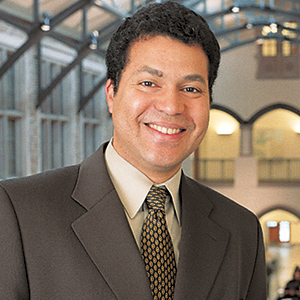 José Rios
José Rios
Education, UW Tacoma
José Rios is famous for getting adult students to do all kinds of crazy stuff, like shooting rockets made from film canisters powered by antacid tablets 20 feet into the air, or building 12-foot-high towers from construction paper to complete a lesson that began with a Godzilla movie.
“But we always learn something. By the end, they get it,” says Rios.
To Rios, an assistant professor of education at the University of Washington, Tacoma, teaching comes down to engaging students.
“I think whether they’re in first grade or they’re graduate students, they all want the same thing. They want to have a good time in class,” he says. “Teaching is supposed to be fun. Learning is supposed to be fun. Sometimes I think we forget that.”
From his first experience at age 20, teaching acting to tough inner-city kids in Ohio, Rios learned a lesson he carries with him to this day.
“I had been on stage, I could act my way out of anything, and could tell them about all these acting methods, stuff that was very important to me, and they asked: ‘So what?’ I was disarmed by these kids asking: ‘Why should I care?'” he says.
That experience prompted Rios to develop classroom experiences not only based on content, but that are relevant to students and incorporated with multicultural teaching practices.
Rios teaches a variety of courses in UWT’s K-8 Teacher Certification program and in the master’s of education program. At the undergraduate level, he teaches science methods and at the graduate level, he analyzes and critiques four contemporary theories of learning: behaviorism, cognitive science, constructivism and social constructivism.
He holds a Ph.D. and M.S. in science education from the University of Wisconsin-Madison. He is the first UW Tacoma faculty member to earn a prestigious UW Presidential Faculty Development Fellowship and has led the UWT summer Intel Math and Science Institute for K-12 teachers since 1999.
Clearly, he is passionate about teaching. “Particularly at UWT, people are making tremendous sacrifices to be here. They are taking time away from kids and there’s the financial sacrifice,” he says. “I want to provide the most engaging, intellectually satisfying, rigorous course I can.”
—Mike Wark, UW Tacoma
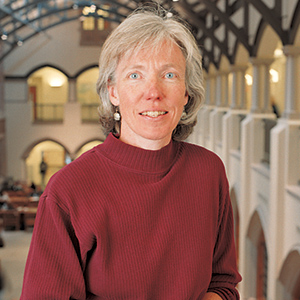 Mary Pat Wenderoth
Mary Pat Wenderoth
Zoology and Biology
To Mary Pat Wenderoth, teaching doesn’t mean disseminating information. A book can do that. And it isn’t telling students what they need to know. That’s what videos are for. Wenderoth, a senior lecturer in the Department of Zoology and the Biology Program, believes teaching means helping students learn to think like scientists.
Wenderoth has been teaching since 1979, when she took her first post as an instructor in health education at Central Michigan State University. She has a doctoral degree in physiology from Rush Medical College, Chicago, and did her post-doctorate in the biochemistry department at the UW.
She always enjoyed teaching, but it wasn’t until 1990, when she stepped in at the UW as a sabbatical replacement, that she knew teaching was her calling. Wenderoth later met Harold Modell, a professor at Bastyr University in Seattle, who became her teaching mentor. He opened her eyes to a concept called “helping the learner learn.” This means creating an environment where the student has the opportunity to grapple with and build biological concepts and where the student feels safe to ask questions or have a wrong answer.
It boils down to an “ask, don’t tell” strategy. Wenderoth poses questions and then says, “Talk to your neighbor.” She explains, “This method encourages them to talk out their ideas with one another. They can see the value of their peers as learning colleagues. Scientists are always kicking their ideas around, aren’t they?”
Even in large lecture classes, Wenderoth makes a point of learning each student’s name and calling on each of them by name in class. “I grew up in a military family and we were always moving. But there was one administrator who knew my name on the first day I walked into my new high school and that made me feel included,” she says.
Her colleagues are astonished at the energy she brings to the classroom. “Despite the fact that her courses tend to be large lecture/lab courses, she is constantly developing new materials. When asked to teach Biology 100 for non-majors, rather than take on an existing curriculum, she was excited to prepare a course that would be more relevant,” says Linda Martin-Morris, a fellow biology program lecturer.
Matt Alexander, a fifth-year senior, says Wenderoth’s lectures are of another order entirely. “Rather than demand that students regurgitate useless numbers and equations, she empowers students by teaching them how to learn complex scientific material,” says Alexander.
Helping students learn to think like scientists means students have to work hard in Wenderoth’s classes. “I’m not a pushover,” she says. “If you can pass my class, you know you’re really good.” —Julie Garner
Excellence in Teaching Awards
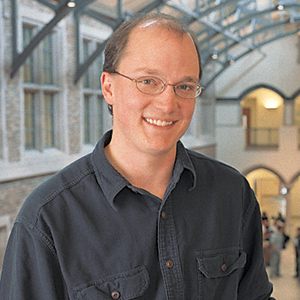 John Armstrong
John Armstrong
DEPARTMENT: Teaching Assistant, Astronomy
COURSES TAUGHT: Astronomy 101 and 151.
ACHIEVEMENTS: Armstrong does not have to teach—he chooses to do so out of personal enjoyment and because of the service it provides for his department. He goes the extra mile by extending office hours and hosting special review sessions for his students. His class organization and preparation were so outstanding that he was asked to teach an introductory course on his own. Armstrong also volunteers as an astronomy partner to 2nd and 5th grade teachers in a local Seattle school as part of Project Astro.
QUOTE: “I can remember the lecture on inertia and gravity that he gave while wearing Rollerblades. Not only did this open the door for great examples, but it kept everybody attentive—and a bit worried.”—Dustin Wallace, former student
DEGREES: B.S., University of Iowa, 1998; M.S., UW, 2000.
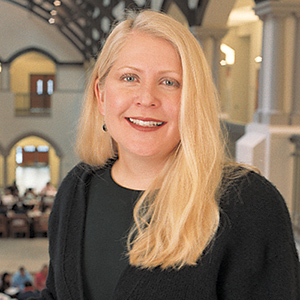 Kathleen Cook
Kathleen Cook
DEPARTMENT: Teaching Assistant, Psychology
COURSES TAUGHT: Instructor for Social Psychology; TA for Psychology 101 and 102, Abnormal Psychology, Social Psychology and Personality Psychology.
ACHIEVEMENTS: Cook was the lead TA for the 1999-2000 school year and won the department’s Distinguished Teaching Award. She helped put together orientation for incoming graduate students, which is essential in preparing the students for their first teaching assistant experience. Cook encourages students to be creative and works one-on-one with students to help them achieve success.
QUOTE: “Rather than relying on multiple-choice exams … Kathy uses a variety of written assignments to vary both the type of material she obtains and students’ opportunities to learn. I thought Kathy might be too ambitious in her goals for the course, but she has carried it off admirably. She is not afraid to take chances in her teaching.”—Seattle University Psychology Professor John Davis, ’98
DEGREES: B.A., University of Louisville, 1988; M.A., UW, 1996.
Distinguished Graduate Mentor Award
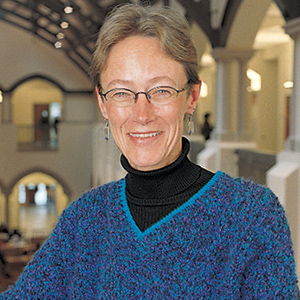 Judith A. Howard
Judith A. Howard
DEPARTMENT: Professor of Sociology; 19 years at UW.
COURSES TAUGHT: Introduction to Social Psychology, Teaching Sociology, Special Topics in Social Psychology.
ACHIEVEMENTS: Howard serves as a role model for her students and colleagues. She mentors graduate students in their academic, professional and personal lives. Her students know they can turn to her for thoughtful and selfless support. Howard is the editor of Signs: Journal of Women in Culture and Society and was elected the 2001-2002 president of the Pacific Sociological Association.
QUOTE: “Judy’s mentoring has never ended. Even though I have been teaching now for 12 years and even chair my own department, I still seek her input and ideas whenever I need them. To this day, I consider her a friend, a colleague and an intellectual guide.”—DePauw University Professor David M. Newman, ’84, ’88.
DEGREES: B.A., Cornell University, 1969; M.A., University of Oregon, 1977; Ph.D., University of Wisconsin-Madison, 1982.
S. Sterling Munro Public Service Faculty Award
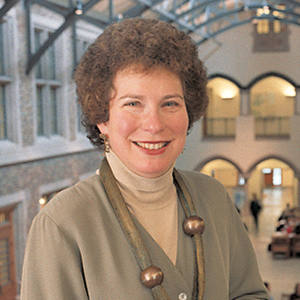 Margaret Levi
Margaret Levi
DEPARTMENT: Political Science and International Studies; 27 years at the UW.
COURSES TAUGHT: Introduction to Labor Studies, Government and the Economy, Special Topics in Political Economy.
ACHIEVEMENTS: Levi joined the political science faculty as assistant professor in 1974 and has worked her way to becoming the first woman full professor in the department’s history. From the beginning, she has focused on field experience as a prime learning opportunity for her students. As director of the Center for Labor Studies, she has built many links with local labor organizations, and other faculty are using these links for their students as well. While the service-learning component in Levi’s classes is optional, more than half the students elect this option in her Introduction to Labor Studies course.
QUOTE: “In the late ’70s and throughout the ’80s, before service learning had become fashionable, she was doing it out of her personal commitment and her vision of quality undergraduate learning experiences.”—Political Science Chair Michael McCann.
DEGREES: A.B., Bryn Mawr College, 1968; Ph.D., Harvard University, 1974.
Outstanding Public Service Award
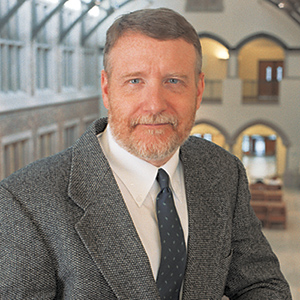 Charles N. Mock
Charles N. Mock
DEPARTMENT: Assistant Professor of Surgery and Epidemiology; seven years at the UW.
ACHIEVEMENTS: Mock has spent a large portion of his career focusing on trauma prevention in both America and Third World countries. At the UW he has been crucial to the success of Harborview’s Injury Prevention Center, particularly in its analysis of car crashes and trauma. He is also a volunteer surgeon in Ghana, West Africa, where he focuses on prevention of trauma and lifetime disabilities. One of his efforts is to curtail alcohol abuse in professional drivers in Africa and South America. He has led a government-supported screening of taxi, bus and truck drivers as a new way of preventing accidents. Most of this Third World work—including the training, direct patient care and research—has been done with virtually no compensation or other material rewards. In fact, these activities have slowed his career development, as he was willing to give up a position at Brown University to advance health care delivery in these developing nations.
QUOTE: “Mock is one of those rare individuals whose highest priority is for the betterment of his fellow man.”—Surgery Professor and Vice Chair Ronald V. Maier
DEGREES: Sc.B., Brown University, 1977; M.D., Brown University, 1980; M.P.H., UW, 1994; Ph.D. UW, 1997.
Distinguished Staff Awards
Roxana Augusztiny
DEPARTMENT: Burke Museum
ON THE JOB: Acting Director; 34 years at the UW.
ACHIEVEMENTS: Augusztiny began her career at the Burke Museum as a work-study student assigned to animal feeding and will soon end her 34-year career as its acting director. She had the foresight to purchase the museum’s first computer in the 1970s and hire its first development officer in the 1980s. In the 1990s, she helped influence the Legislature in Olympia to support the museum’s programs. Recently she had to move from assistant director to acting director on short notice, overseeing a $3 million budget, 150 staff and volunteers and a volunteer board.
QUOTE: “Without her profound dedication, breadth of knowledge, and the very high standards of professional excellence she sets for herself and expects of others, the Burke would today be far less prestigious and far less well-known.”—Burke Curators Sievert Rohwer and James D. Nason
Pedro E. Borrayo-Alatorre
DEPARTMENT: Custodial Services
ON THE JOB: Custodian; 11 years at the UW.
ACHIEVEMENTS: Borrayo-Alatorre treats the Center for Urban Horticulture like his home. Its faculty, staff and students have been touched by him in countless ways. When female students and faculty work late, he walks them to their cars (he has a black belt in karate). If he finds lab equipment running that he knows should be turned off, he will make the extra effort for safety. He is able to clean and reorganize a 200-person meeting room in 15 minutes or help unload the root system of a 20-year-old Douglas fir—in the dark. Borrayo-Alatorre is so well liked by faculty, students and volunteers that when he was almost transferred (which he eventually was not), 21 of his “fans” banded together to give a testimonial and a gift in preparation for his departure. Off the job, he has done search and rescue work in Mexico, volunteered for Habitat for Humanity and collects toys for a Mexican charity.
QUOTE: “In my years at the University of Washington, I have not witnessed a person who matches his attention to detail, his work ethic and his reliability. … I have yet to witness a situation that Pedro cannot handle.”—Urban Horticulture Director Thomas Hinckley
David O. Duggins
DEPARTMENT: Friday Harbor Laboratories
ON THE JOB: Marine Technologist; 21 years at the UW.
ACHIEVEMENTS: In a small department with limited resources, Duggins handles numerous responsibilities, including skipper of a research vessel, diving safety officer, chemical and radiation safety officer, local marine historian, and consultant to scientists and students on selection of study sites and other scientific tasks. On his own volition and with no University support, Duggins began an outreach program for K-12 students in San Juan County schools, including building a salt water aquarium for an elementary school. He was able to secure a $100,000 award from a private foundation to purchase a remote-operated submarine that transmits video images from depths up to 1,000 feet.
QUOTE: “His vast commitment of time, his direct and generous support to the educational and research efforts of university people, and his major success in seeking and finding funds to assist the University achieve its educational and research goals are extraordinary.”—Friday Harbor Laboratories Director A.O. Dennis Willows
Sinh Simmons
DEPARTMENT: Grant and Contract Services
ON THE JOB: Manager; 18 years at the UW.
ACHIEVEMENTS: Last year the University of Washington received more than $472 million in federal research grants—the largest amount going to any public university in the nation. Simmons manages a team of five grant administrators who oversee this grant activity. She must coordinate complex applications and make sure they conform to federal regulations. She often stays late to meet federal deadlines for the submission of late arriving proposals. Lately she has been a leader in using technology to speed up the grant application process, including automated tracking systems and the creation of a Web-based grant and contract system for the University.
QUOTE: “Sinh has developed a reputation as a tireless and thoroughly knowledgeable expert in delivering the myriad and vitally important services to the University community. … She is the person we all count on for the correct information.”—Carol Zuiches, director, Grant and Contract Services
Susanna J. Westen
DEPARTMENT: Slavic Languages and Literature
ON THE JOB: Program Coordinator; 6 years at the UW.
ACHIEVEMENTS: “Shosh” Westen serves as a key link between her department and its students, alumni and the general public. She helped found the Slavic Languages Alumni Club, maintains the department Web pages, and creates the department newsletter. She even helps the general public when they call looking for translators or tutors—including representatives of the Woodland Park Zoo, the Seattle Police Department and the Seattle Art Museum. Westen also saved the Russian language Olympiada, a statewide contest for high school students, when it looked like the event might come to an end. She even runs a Russian conversation table once a week to help beginning students.
QUOTE: “If she can be of help to anyone, she will do it, no matter the cost to herself; whether it is giving up her bed to a visiting student, scholar or faculty member; or staying up to cook and bake in order to make sure that all the holidays and birthdays are celebrated and that there is always ‘food for the hungry’ in our department office.”—Slavic Languages and Literature Professor Kat Dziwirek